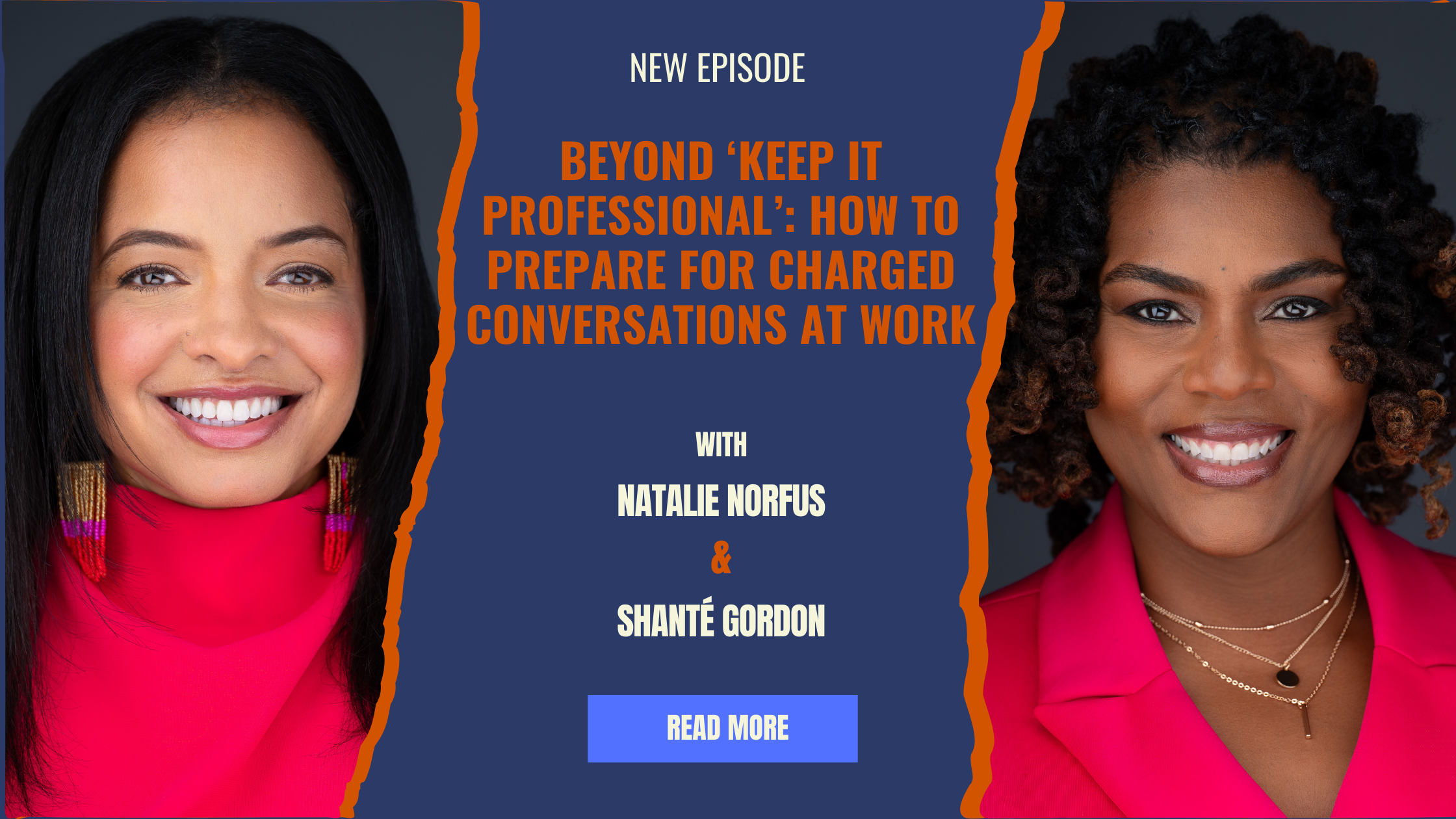Beyond ‘Keep It Professional’: How to Prepare for Charged Conversations at Work

In today’s polarized environment, it’s not a matter of if sensitive topics come up in the workplace — it’s when. From politics to social justice, charged conversations are part of everyday life in 2025. In the latest episode of What’s the DEIL?, Natalie and Shanté dive deep into what leaders and organizations can do to prepare — not panic — when these conversations arise.
Here’s a breakdown of the 4-part framework to create safer, structured, and productive dialogue at work:
1. Set Clear Conversation Parameters
This is the foundation. Before you can navigate any sensitive topic at work, you must define what’s acceptable in how people engage with one another.
That means:
- Establishing behavior norms rooted in your organization’s values.
- Clarifying what respectful communication looks like (and doesn’t).
- Consistently reinforcing these parameters, not just posting them in a handbook no one reads.
Pro Tip: “Good behavior” at work shouldn’t be 93 bullet points long. Focus on the 3–5 things that actually matter — clarity is your ally.
2. Train Your Managers to Respond — Not React
Managers are on the front lines. They’re the ones catching heat from leadership above and employees below — often with little to no preparation for the nuance of people management in today’s world.
What they need:
- Training on how to de-escalate and coach employees through difficult conversations.
- Real-world scenarios to practice handling tense moments.
- Ongoing development — not just one-off webinars.
“One training doesn’t change behavior. People need repetition, reinforcement, and real-time support.”
3. Facilitate Structured Dialogue Spaces (Only If You’re Ready)
There’s a time and a place for employer-sponsored conversations about difficult or emotional topics — but they must be handled with care.
Only host these sessions if:
- You clearly define the purpose of the conversation.
- You bring in trained facilitators (this is not a DIY moment).
- You’re prepared to respond to what arises — not just “hold space.”
Avoiding intention or preparation here can backfire — big time.
4. Create Escalation + Feedback Mechanisms That Work
If something said in a conversation crosses a line or makes an employee feel unsafe, they need to know where to go and what to expect. You’d be surprised how many don’t.
Checklist:
- Clear reporting pathways (HR, anonymous hotline, third-party ombuds).
- Follow-through that builds trust, not fear.
- Manager and leader training on how to handle complaints with empathy and accountability.
Pro Tip: Equip leaders to respond with emotional stamina — therapy and executive coaching go a long way in today’s climate.
The Bottom Line?
Trying to avoid sensitive conversations at work in 2025 is like trying to avoid the internet — it’s not going to happen.
Instead, your role as a leader is to create the container where people can engage respectfully, safely, and thoughtfully. That’s how you build trust, protect your culture, and empower your people — even in the face of political and social turmoil.
What’s Next?
In the next episode of What’s the DEIL?, we dive into what wellness actually looks like in 2025 — and why bubble baths and yoga classes aren’t enough.
Stay tuned. And in the meantime, let us know how your organization is handling hard conversations at work.
Connect With Us
If you found this discussion compelling, we invite you to connect with us further. Here are some ways to stay in touch:
- Follow Natalie Norfus on LinkedIn
- Follow Shanté Gordon on LinkedIn
- Book a consultation with The Norfus Firm
- Follow What’s the DEIL on Instagram and TikTok
